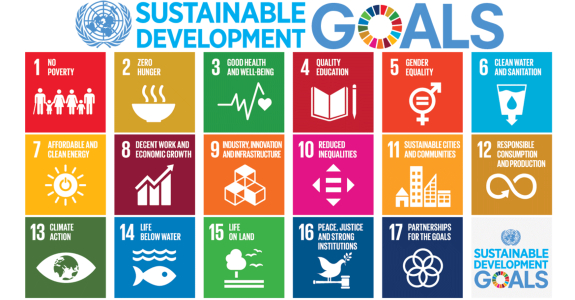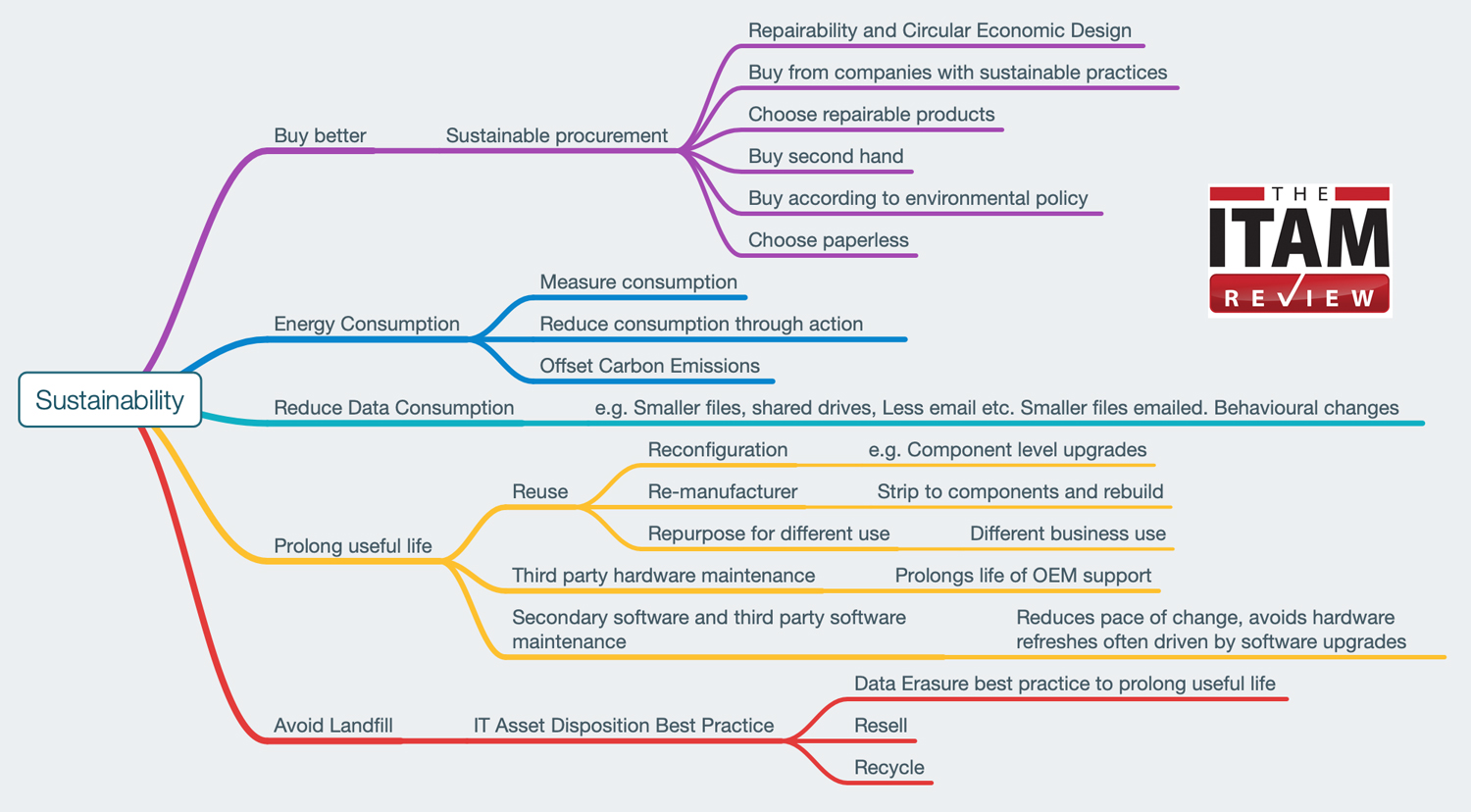From the Paris Agreement to ITAM, how every IT Asset Manager can support climate change
The environmental business benefits of ITAM have historically taken a back seat compared to cost savings and compliance, but the unequivocal evidence of climate change is forcing the world to take a look at the damage being done and take action.
A mature ITAM practice has the power to make a real impact in terms of corporate social responsibility, environmental impact, and energy costs.
I believe every single IT Asset Manager can make a positive impact on energy consumption and sustainability.
We can all do our bit.
Small changes to our everyday corporate habits will lead to massive change. Moreover, sustainable choices are commonly the smartest economic choice too.
In this article I’ll highlight how we as IT Asset Managers can contribute to take action on the planet.
The Paris Agreement
The United Nations Paris Agreement is a commitment by nearly 200 countries to address climate change.
“The Paris Agreement’s long-term temperature goal is to keep the increase in global average temperature to well below 2 °C (3.6 °F) above pre-industrial levels; and to pursue efforts to limit the increase to 1.5 °C (2.7 °F), recognizing that this would substantially reduce the risks and impacts of climate change.”
To contribute towards this, two of the UN’s global goals are particularly relevant to the management of IT:
- Global Goal 12: Responsible Consumption and Production
- Global Goal 13: Take action to combat climate change and its impacts
United Nations, 17 Global Goals

12: Responsible Consumption and Production
Specifically, for IT Asset Management, we are advised to “encourage companies to adopt sustainable practices and sustainable reporting” (12.6) and “promote sustainable public procurement practices” (12.7).
Guidance:
- Do some research and buy from companies you know have sustainable practices and don’t harm the environment.
- Choose reusable products and reduce plastic waste
- Buy second-hand whenever you can
- Buy (user-)repairable devices with long warranties and support after the last sale
- In the absence of support from the original manufacturer, seek support from third party maintainers
- Dispose of assets using a specialist; independent parties tend to score highly for reuse or avoiding landfill
13: Climate Action: Take action to combat climate change and its impacts
Specifically, for IT Asset Management, we are advised to “Build knowledge and capacity to meet climate change” (13.3) and “Integrate climate change measures into policies and planning” (13.2).
- Recycle paper, plastic and old hardware
- Reduce your use of paper. Avoid printing and substitute it with electronic devices.
- Offset your carbon emissions
- Buy low power devices and support proactive power management for all IT assets
The Green Deal
On a European level, the EU’s stated aim is to be “the first climate-neutral continent by 2050”. Key initiatives in the Green Deal are to “boost the efficient use of resources by moving to a clean, circular economy” and “restore biodiversity and cut pollution”.
Electronics and ICT are included within the Circular Economy Action plan.
Notably for Asset Managers, expect further legislation in these areas to support the Green Deal:
- “At present, many products break down too quickly, cannot be reused, repaired or recycled, or can only be used once. This linear pattern of production and consumption (“take-make-use-dispose”) does not give producers an incentive to make more sustainable products. The Sustainable Product Policy Framework aims to change this situation with actions to make green products become the norm. The rules will also aim to reward manufacturers of products based on their sustainability performance and link high performance levels to incentives.”
- “The Commission will work towards strengthening the reparability of products. The aim is to embed a “right to repair” in the EU consumer and product policies by 2021.”
- “The Plan foresees also actions to give consumers more reliable information about products at the point of sale, including on their lifespan and other environmental performance. The Commission will propose that companies substantiate their environmental claims by using Environmental Footprint methodologies. Stricter rules will be proposed to reduce greenwashing and practices such as planned obsolescence.”
- “New measures will increase the uptake of green public procurement, such as introducing minimum mandatory green criteria or targets for public procurement.”
- “Preventing waste from being created in the first place is key. Once waste has been created, it needs to be transformed into high-quality resources.”
An example of this in action was published by DEFRA last month. DEFRA is the UK government’s department for Environment, Food and Rural Affairs. Their “ICT and digital services strategy” is aligned to the UN Sustainable Development goals mentioned earlier.
A DEFRA stated aim is to “5.1 Report on the annual percentage improvement in the procurement of remanufactured/refurbished ICT promoting multiple usage lifecycles”. Or in layman’s terms – reusing or upgrading their existing kit so they don’t need to buy new. A great start but what else could IT Asset Managers do to contribute towards the sustainability of their IT environment?
Smarter environmental decisions throughout the IT Asset Lifecycle
Click to enlarge the image below to see some smarter decisions IT Asset Managers could make or influence throughout the IT Asset Lifecycle. This is just a first rough draft – If there are any other sustainable strategies you would recommend for IT Asset Managers please leave a comment below or contact me (Contact form, LinkedIn).
Get Involved – 19770 Sustainability Study Group
Are you interested in learning more about how IT Asset Managers can contribute positively towards climate change? Do you have success stories, experiences to share or would otherwise like to get involved?
WG21, the voluntary group that builds 19770 ITAM standards, is launching a study group to investigate the business impact of ITAM on energy consumption and sustainability.
Anyone can join, you don’t need to be part of ISO or WG21. Please email support@itassetmanagement.net or connect with me on LinkedIn to get involved.
Thanks, Martin
Resources / Further Reading
Paris Agreement:
- https://en.wikipedia.org/wiki/Paris_Agreement
- https://unfccc.int/process-and-meetings/the-paris-agreement/what-is-the-paris-agreement
UN International Resource Panel
Green Deal:
- https://ec.europa.eu/info/strategy/priorities-2019-2024/european-green-deal_en
- https://ec.europa.eu/commission/presscorner/detail/en/qanda_20_419
United Nations Global Goals:
- https://www.globalgoals.org/
- 12: Responsible Consumption and Production https://www.globalgoals.org/12-responsible-consumption-and-production
- 13: Climate Action: Take Action to combat climate change and it’s impacts https://www.globalgoals.org/13-climate-action
Bodies / Initiatives
If there any trade bodies or initiatives missing from this list please contact me (Contact form, LinkedIn).
- ADISA
- CEDaCI
- Datacentre Alliance
- Estewards
- Institute of Scrap Industry Recycling
- ISO 14000
- FreeICTEurope
- NAID
- SERI R2
- Remanufacturing Industries Council
- Repair.org
- SNIA
- WEEE
Can’t find what you’re looking for?
More from ITAM News & Analysis
-
ITAMantics - April 2024
Welcome to the April 2024 edition of ITAMantics, our monthly news podcast where we discuss the biggest ITAM stories from the last month. George is joined this month by AJ Witt and Ryan Stefani. Stories tackled ... -
Broadcom is removing expired VMware licences from its portal - take action now!
Hot on the heels of Broadcom’s announcement of the end of perpetual licences for VMware it has given customers barely a week to download any keys for licenses from its portal with expired support. This is ... -
Who Loses When Broadcom Wins?
News of a new Broadcom deal rarely arrives with great fanfare. The November 2023 VMware acquisition provoked open worry online and in business circles, with many critics wondering whether the former Hewlett-Packard spinoff’s reputation would prove ...
